04 May 2022
Grass10 Newsletter – 3rd May 2022
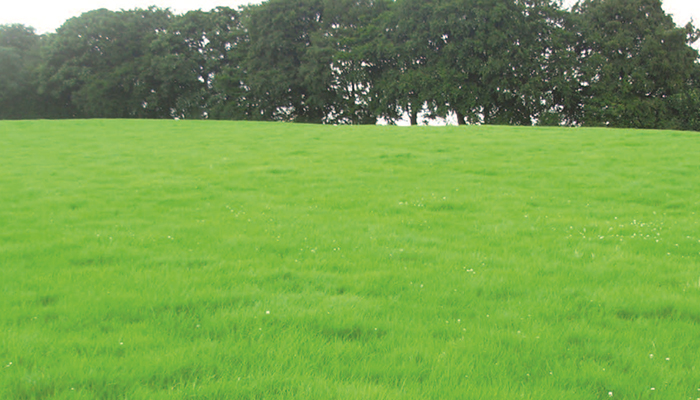
In this week’s newsletter the Grass10 team return to farmer Lawrence Sexton in The Clover Reporter section as well as this week’s Grass10 featured farmer Philip & John Tyndall. View some Grass10 weekly tips, grass growth figures and upcoming webinar on the grass wedge using PastureBase Ireland
194th Edition – 3rd May 2022
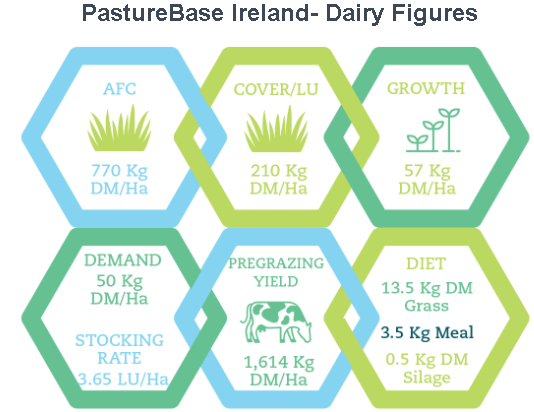
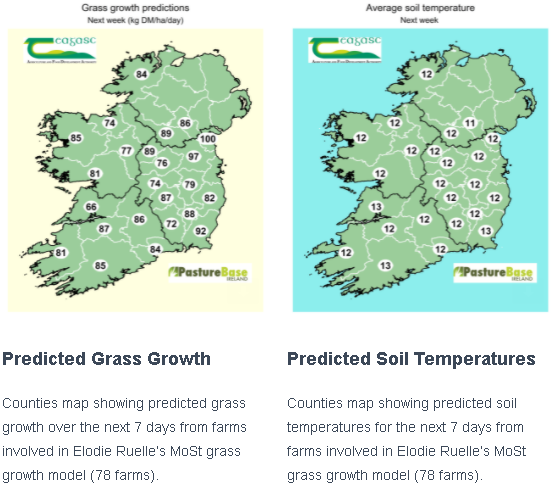
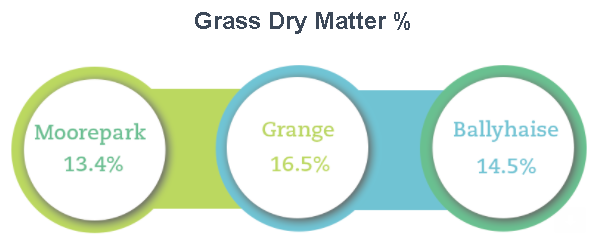
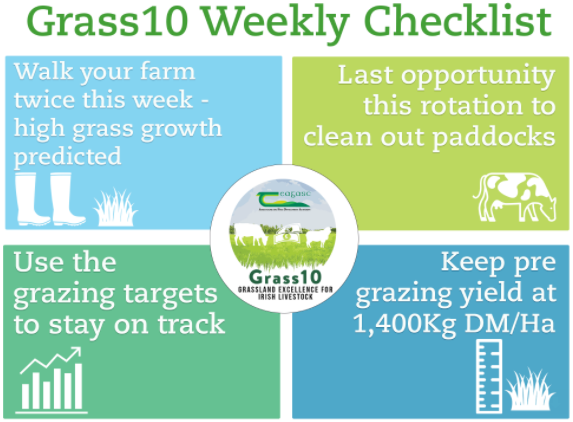
Grass10 Weekly Tips
Very high grass growth predicted – Decision Time!!
PastureBase shows 42% of farmers have a pre-grazing over 1,600 KgDM/ha, and with high grass growth rates predicted this figure will increase. Decisions must be made to ensure you graze grass at the optimum stage, 1,400 Kg DM/ha and grass covers over this should provide an opportunity to make high quality baled silage. Other options to help keep on track: take out a paddock for reseeding, long-term silage where stocking rate below 3.5 LU/ha, let other stock graze a paddock, remove silage and/or consider reducing meal to increase grass intake. Use predicted wedge function on PastureBase to help you make this decision.
Last opportunity to clean out paddocks
May means a change to the reproductive phase in the ryegrass plant. There is about 10-14 days before this occurs. Paddocks that were poorly grazed out last round should be targetted to reach a 4cm residual. This will ensure a high quality grass sward for the next rotation and so you can profit from high grass utilisation. Not grazing out means more stem and poorer animal performance.
Use the grazing targets to stay on track
The targets below will help balance grass supply and quality.
1. Pregrazing yield should be 1400 KgDM/ha. Take the opportunity
2. Average Farm Cover (AFC) should be around 600-700 KgDM/ha.
3. Match demand with grass growth. E.g. growing 65 KgDM/ha per day and need to set demand the same. If stocking rate 4 LU/ha then 65/4 = 16 KgDM Grass per LU + 2kg meal (for total intake 18 KgDM/LU)
4. Rotation Length 18-21 days. E.g. 30ha grazing block / 20 days = Graze 1.5 ha per day
5. Cover/LU should be around 160-180 KgDM/LU. This equates to 12-14 days ahead depending on how much grass is being fed per LU.
All parameters above should be near the target on your farm
Poor grass quality is expensive feed
When pregrazing yield exceeds 1,600 KgDM/ha the feed quality drops and animals can’t eat as much of it. This means their output drops and so too will your profit and in a year with high input prices every kg counts. High quality swards are more digestible and have more leaf. Poor quality swards have more stem and are less digestible. The difference to dairy farmer is a 5% drop in milk solids (worth about €420 per week for 100 cows). The difference for a beef farmer is 0.2 Kg/head/day in liveweight gain (worth about €155 per week for 50 cattle). High quality grass swards mean grazing at 1,400 KgDM/ha and grazing out to 4cm – what you earn depends on the decision you make.
Getting to Grips with the Summer Wedge
Join us for our upcoming webinar where we will highlight how to use PastureBase to generate your grass wedge, understand it, and make good grazing decisions. We are joined by dairy farmer Philip Tyndall (this weeks featured farmer) and beef farmer Aidan Maguire who are current Grassland Farmers of the Year to share their experiences. Register below
Grass10 Featured Farmer
Philip and John Tyndall, Co. Wexford
 Philip farms with his father John milking 149 cows in Co. Wexford. Last month Philip was awarded the title of 2021 Grass10 Young Grassland Farmer of the Year. This week he updates us on his current situation. Philip will join us for the summer wedge webinar on May 12th (see below).
Philip farms with his father John milking 149 cows in Co. Wexford. Last month Philip was awarded the title of 2021 Grass10 Young Grassland Farmer of the Year. This week he updates us on his current situation. Philip will join us for the summer wedge webinar on May 12th (see below).
The Clover Reporter
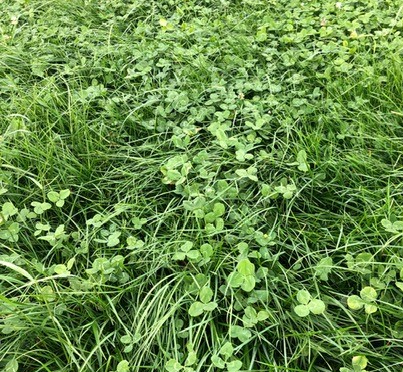
Lawrence Sexton, Co. Cork
 This section will give weekly reports and videos from farmers who have a lot of clover established on their farms.
This section will give weekly reports and videos from farmers who have a lot of clover established on their farms.
This week, dairy farmer Lawrence Sexton from Cork explains what clover he has incorporated this year and his top tips for ensuring oversowing is a success on your farm!
Sign up for weekly grass 10 newsletter


